Eating well and sleeping better
A balanced diet and regulating the times of your meals, under medical supervision, can be a great help in preventing sleepless nights.

+ A dinner high in long chain carbohydrates (which your body breaks down slowly) and low in proteins can be helpful in bringing on sleep. Bread, pastas, potatoes and rice can bring effective results. It is also helpful to eat foods containing tryptophan, an essential aminoacid that helps you sleep. Tryptophan is found in turkey, figs, bananas, dates, yogurt and tuna. Recent studies have shown that Omega-3 fatty acids help you to sleep. Flaxseeds, sunflower seeds, sesame seeds, pumpkin and nuts all contain Omega-3. Many minerals and vitamins are very important for getting a good rest. We have put together a list with some of the most important nutrients to help you sleep.
AGAINST APNEA
Apnea is obstructived breathing or people who stop breathing repeatedly during their sleep. It can be associated with obesity. To prevent apnea it is important to avoid calorie and fat rich foods like butter, margarine, lard, oils, cakes, cookies and fried foods.
VITAMINS AND MINERALS
Our bodies need vitamins and minerals for specific uses in the body, which our body does not produce. We need an adequate intake of vitamins and minerals in our diets. Those of us who eat a diet lacking essential nutrition tend to get sick often and suffer from insomnia. Studies have proven that foods rich in vitamin C and B complex vitamins and minerals such as calcium and magnesium help to replace energy during sleep. We have compiled a guide to nutrients and their functions and to foods containing that vitamin and/or mineral.
Vitamin B 1
Water-soluble nutrient that the body does not produce, which needs to be incorporated into the diet. Resistant to light, it doesn't break down when exposed to heat. Alcohol, coffee and birth control pills destroy this vitamin. It helps to metabolize carbohydrates and improves digestion. It is an important nutrient that supports the nervous system, fights stress and helps you to rest. Vitamin B 1 deficiency can cause depression and irritability and other symptoms. Foods that are good sources of vitamin B 1 are wheat germ , brewer's yeast , whole grain cereals , lentils , oranges , egg yolks and nuts .
WARNING
You should always consult your doctor before changing your diet.
NOT TOO LITTLE NOR TOO MUCH
One of the golden rules to get a good night's sleep is not going to bed with an empty stomach, because if you are hungry you tend to wake up more. On the other hand, if you want to get a deep, undisturbed night's sleep, you should avoid drinking a lot of liquid at dinner. Excess food is also not advised, because insomnia can be brought on by digestive disorders. It's ideal to eat a light dinner 2 to 3 hours before going to bed.
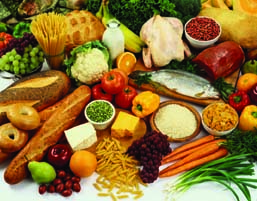
Vitamin B 2
Although it is resistant to heat, alcohol, stress and contraceptive pills can destroy this vitamin. Helps to break down carbohydrates, proteins and fats, as in cellular respiration. It is a fundamental nutrient that supports oxygen flow in the body. It helps you to sleep. It is found in brewer's yeast, cereals, granola, muesli, eggs, green vegetables, dairy products, fish, dried fruits, and nuts, like almonds and hazelnuts.
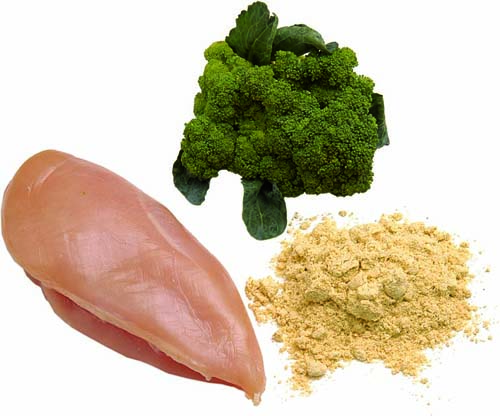
Vitamin B 3
The aminoacid tryptophan can help synthesize vitamin B 3 inside the human body. It can be exposed to the light, but alcohol, birth control pills and sleeping aids destroy this nutrient. It helps to prevent cardiovascular diseases, reduces cholesterol, and is useful for nervousness like mood swings, paranoia, fear, insecurity, etc. A lack of vitamin B 3 can cause insomnia, because your mind can't calm down and your spirit becomes unstable. As with other B complex vitamins it can be found in whole grain cereals, fish, eggs, dates, figs, peanuts, almonds and brewer's yeast.
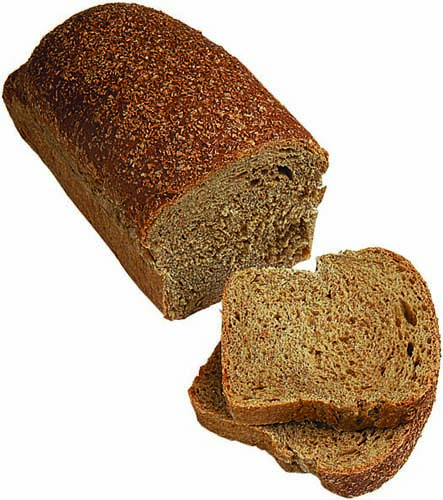
ENERGETIC BREAKFAST
To feel energized and strong all day long it is important to eat a good breakfast in the morning, meaning a healthy and nutritious breakfast. For example: cereal with milk or yogurt, all containing vitamins B 2 and E; fruit juices –like orange juice-that contain vitamin C; seasonal fruits; and even eggs (in an omelette) with fine strips of ham and cheese.

Vitamin B 5
The body and intestinal bacteria synthesize this nutrient. It is easily destroyed by alcohol, coffee, birth control pills, sleep aids and cooking. It helps the body break down carbohydrates and proteins. It is helpful in cases of stress and exhaustion. A lack of B 5 can cause symptoms such as exhaustion and digestive problems. Good sources of B 5 are meats, dairy products, eggs, brewer's yeast, mushrooms, whole grain cereals and beans.
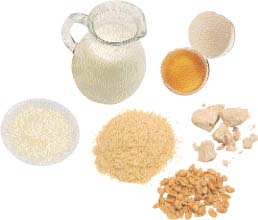
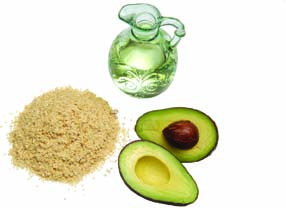
WHEAT GERM
Wheat germ is rich in vitamin B complex, but is also a good source of iron, phosphorus, and vitamin E. It can be very helpful in supporting the nervous system because it contains magnesium, copper and potassium.
Use ground wheat germ added to yogurt, fruit or cereal. You can also add it to salad, soups or stews for an extra nutritious meal.
TURKEY
This low-fat white meat is one of the most recommended foods for insomnia because it is rich in tryptophan that helps to bring on sleep.
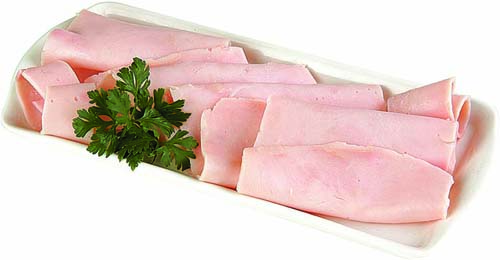
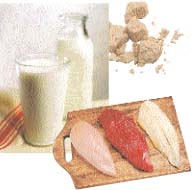
Vitamin B 6
Alcohol and birth control pills break down this nutrient. Meat eaters need a higher amount of B 6 than vegetarians. It is an important vitamin for the immune system. It supports metabolism, especially proteins. It is abundant in natural foods; it is found in wheat germ, brewer's yeast, whole grain cereals, fish and eggs. A low level of B 6 is associated with insomnia; it's good to include B6 rich foods such as pork meat and salmon in your diet.
Vitamin B 8
Supports the body's metabolism of carbohydrates, proteins and fats. It is found in milk, yeast, peanuts, egg yolk and beans.
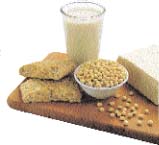
MILK AND HONEY

Vitamins from the B-complex group are found in milk. Also, the aroma and taste of milk brings us back to our childhood. Warm milk with a touch of honey is a comforting beverage, perfect before going to bed. It also provides the body with the calcium and fats that the body needs. It regulates the level of insulin in the body. Insulin released in the body can stimulate tryptophan production and induces serotonin, a neurotransmitter that sends messages between nerve cells and causes feelings of sleepiness. The carbohydrates found in honey also help assimilate tryptophan of milk. You can replace honey with molasses, rich in potassium, copper, iron, calcium, phosphorus, magnesium and vitamins B and C.
BE CAREFUL WITH SWEETS
It's best to avoid sweets. Sugar, candy, cookies, cakes and soft drinks increase the sugar level in the blood, which is usually followed by “minimal levels”. The foods mentioned above can cause asense of exhaustion and fatigue, making it difficult to rest well.

Vitamin B 9 or folic acid
Synthesizes DNA and red blood cells. B 9 deficiency can cause anaemia intestinal parasites and thus, sleeping problems. Some B 9 rich foods: beans, dried fruits, cabbage, spinach, broccoli and other green leafy vegetables, almonds, peanuts and brewer's yeast.
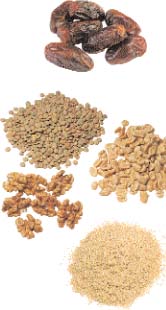
Vitamin B 11
Helps to breakdown fats and lowers cholesterol. Increases your energy, muscular stamina and fights against depression and stress.
B 11 deficiency can result in weak muscles and decreased brain function. It is found in meats, brewer's yeast, milk, egg yolks and oysters.

Vitamin B 12
A water-soluble vitamin that is destroyed by cooking and light. Alcohol, birth control pills and sleeping pills also destroy it. It forms part of the red blood cells. Prescribed for cases of anaemia because it increases the absorption of iron in the red blood cells. A B 12 deficiency can cause fatigue and increased nervousness. Found in meat derived foods, those who are vegetarian tend to have low levels of vitamin B 12 . Found in meats, kidney, liver, dairy and eggs. It is also found in pollen, Spirulina or blue-green algae, and brewer's yeast.
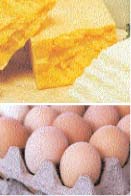
Vitamin C
Is a water-soluble vitamin that is destroyed by cooking, tobacco and aspirins. It supports the immune system and is very beneficial for the body. Vitamin C deficiency can cause susceptibility to infectious diseases, like colds, and causes a number of physical problems, including insomnia. Found in citrus fruits, guavas, kiwi, green leafy vegetables, tomatoes, cauliflower and sweet potatoes.
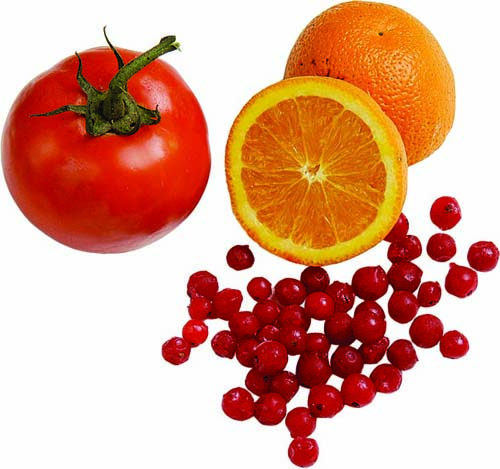
DAILY ROUTINE
Eating at least 2 citrus fruits a day provides an excellent dose of vitamin C. To make sure your body gets enough vitamin C, it's key to drink a glass of fruit juice everyday.
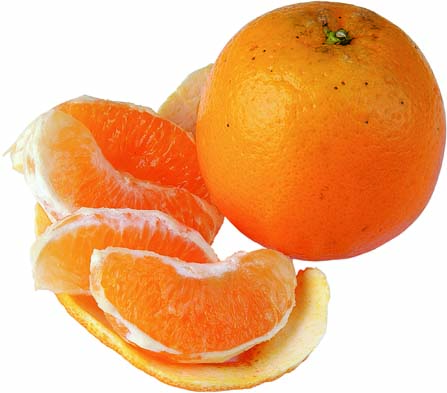
LETTUCE
Green leafy lettuce has a high amount of calcium, which is helpful in bringing on sleep. And the potassium found in lettuce is a fundamental nutrient for the nervous system.
To sleep well: boil 1 or 2 lettuce leaves for five minutes in 2 cups of water. Allow to cool and filter. Sweeten the mixture and drink 1 cup ½ hour before going to bed. Do not drink this infusion if you have bile duct problems.

Calcium
99 percent of calcium in the body is found in the bones and teeth, the remaining 1 percent circulates in the tissues and body fluids. This mineral is important for the coagulation of the blood and for heart muscle contractions. It is also an essential mineral for the transmission of nerve signals. A deficit can result in cramping, spasms, slow pulse, heart palpitations and insomnia. Calcium is found in dairy products, sesame seeds, sunflower seeds, almonds, hazelnuts and other nuts, algae and fresh vegetables.
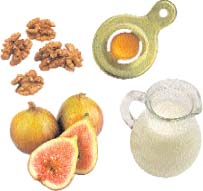

TO ENSURE IRON ABSORPTION
Fruit juices-like orange, lime and grapefruit juices-increase the absorption of iron, while coffee and cafeinated teas have the opposite effect, they impede iron absorption. It's good to use lemon juice to dress salads and to flavor foods, it's also good to accompany meals with lemonade. Avoid drinking tea and coffee after lunch and dinner.
Iron
Iron is found in the body's red blood cells and is fundamental for the formation of hemoglobin, a protein that transports oxygen. It supports the breathing of the body's cells. When the body lacks this mineral, anaemia can result along with lower immunity to illnesses, fatigue and low energy. Deficiency can also cause insomnia. The principal food sources for iron are red and white meats, beans, dried fruits, raisins, lentils, sunflower seeds and green leafy vegetables like dandelions, spinach and kale.
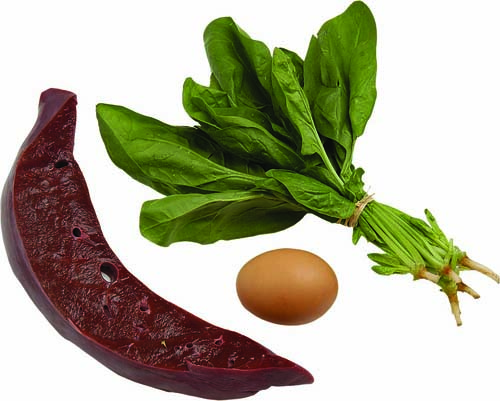
Magnesium
Plays an essential role in developing muscle mass and improving cardiovascular health. Activates enzymes and stabilizes the body's molecules. It acts hand in hand with calcium and phosphorus. Almost 70 percent of magnesium inside the body is found in the bones, the remaining 30 percent is found in the blood and tissues (the muscular system has more magnesium than calcium). A deficiency can cause irritability, stress and insomnia. Deficiency is common in people who are on long term diets. Dried fruits is particularly rich in magnesium, other foods rich in this nutrient include, almonds, soy, oatmeal, figs and dates.
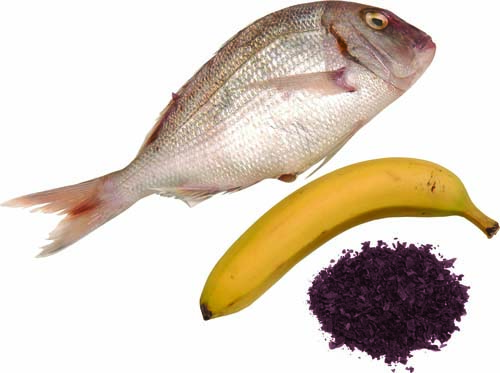
SLEEPY TEA
with sunflower seeds
In 4 cups of water boil 1 tablespoon of sunflower seeds. Allow to cool, strain and sweeten with a touch of honey. This tea relieves the day's tensions and helps you sleep better. Drink a tepid cup of this tea ½ hour before going bed.
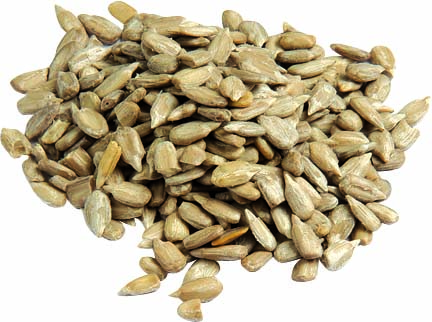
ABC OF EATING AND SLEEPING WELL
It's good to change your meal schedule (breakfast, lunch, snacks and dinner), according to the same number of hours that your waking time has changed. That's to say, if you are waking up earlier than usual and going to bed later, you should eat breakfast and the rest of your meals earlier, eating dinner the same number of hours earlier than you have woken up.
• Breakfast should be the most important meal of the day, rich in vitamins, protein and calories.
• At mid-morning you should eat a small snack, which could be a yogurt, seasonal fruits, flavored gelatin or stock (in the winter).
• Lunch should be rich in proteins (beef, poultry, fish or pork) and seasonal vegetables.
• You should not skip your afternoon snack, it's suggested eating a yogurt or fruit. Whenever possible, try to avoid drinking cafeinated drinks after midday.
• Dinner should be light, try and avoid oils, fats, high proteins and other foods that require complex digestion. You can choose between a plate of pasta, rice with a hard boiled egg, fruits, jam or cream cheese with bread.
• Alcoholic drinks can be deceiving, making you think that they make you sleepy, when on the contrary they keep you from sleeping soundly.

OATMEAL
For pregnant women
Oatmeal has sedative, diuretic, mineral and antioxidant properties. This grain has a number of gentle effects for pregnant women who are having trouble sleeping or temporary nervousness. It is recommended to eat a bowl of oatmeal a day or to take 1 teaspoon of oatmeal tincture diluted in water 3 times a day.

Comment about this article, ask questions, or add new information about this topic: